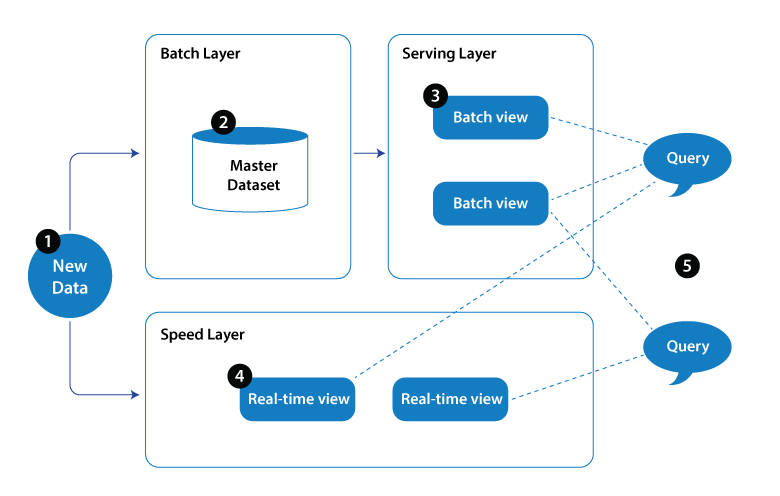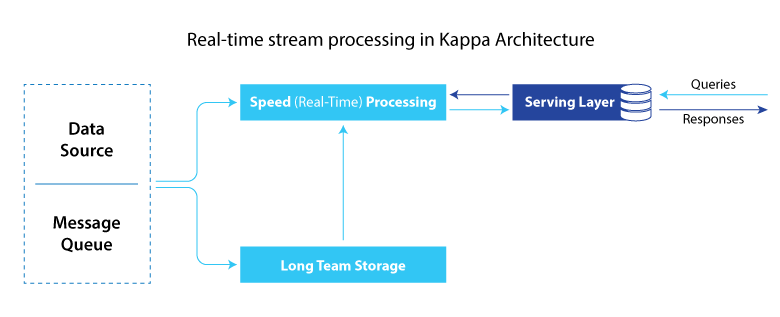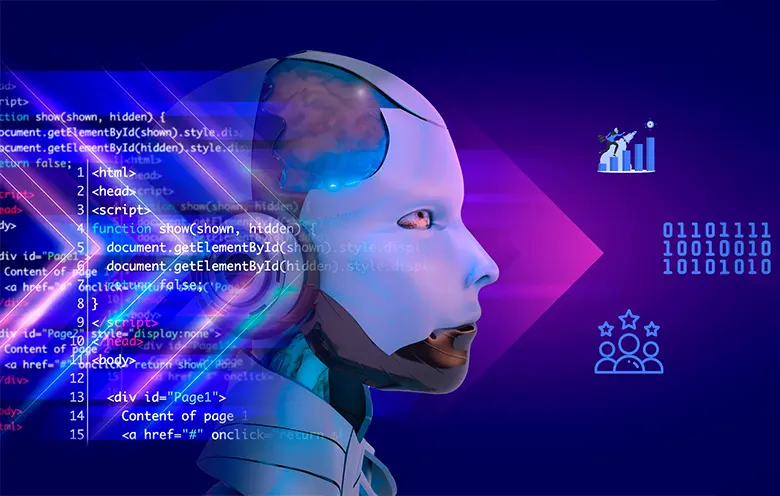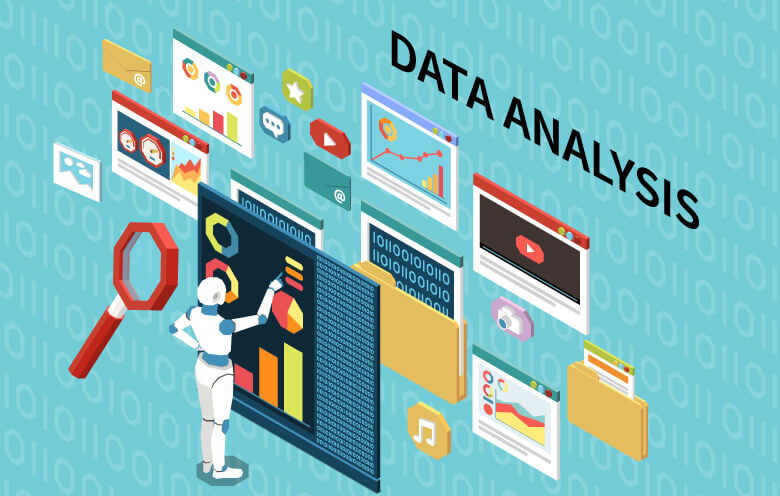In a world where algorithms wield unprecedented power, where data is the new currency, and where innovation is a race against the clock, a transformative force is emerging. This force is reshaping industries from finance to healthcare to e-commerce and agriculture.
Welcome to the realm of machine learning operations (MLOps) – the dynamic fusion of machine learning and DevOps. Imagine models that learn and evolve, much like living organisms. Imagine predictions that offer highly accurate guidance for decision making and industries that are propelled by the intelligent coordination of insights derived from data.
In this era of advanced technology, the implementation of MLOps plays a vital role in achieving business success with AI.
Suggested: Business benefits of MLOps that you can’t afford to miss.
The pivotal role of MLOps
MLOps is essential for organizations that want to leverage the full potential of ML in real-world applications. It addresses challenges such as model version control, reproducibility, scalability and monitoring, which are critical for successful ML deployment. The role of MLOps architecture takes a systemic approach and provides a framework for managing ML workflows, enabling collaboration between data scientists, software engineers and operations teams. It establishes best practices to ensure the robustness, reliability and continuous improvement of ML models.
Looking for MLOps consulting services?
Looking for MLOps consulting services? Our experts help streamline deployment, automation, and scaling of your ML models efficiently.
MLOps architecture
MLOps architecture is a comprehensive framework that encompasses various components and processes involved in the ML pipeline. It provides a structured approach to managing ML models throughout their lifecycle, from data collection to deployment and maintenance.
The architecture includes the following key elements:
1. Data management: This component focuses on data collection, preprocessing and versioning. It ensures that high-quality data is available for model training and testing.
2. Model development: The model development component covers tasks such as model training, evaluation and versioning. It involves selecting appropriate algorithms, tuning hyperparameters and assessing model performance.
3. Model deployment: Model deployment involves packaging ML models into containers or deployment artifacts, orchestrating their deployment and setting up continuous integration and deployment (CI/CD) pipelines.
4. Monitoring and logging: This component ensure real-time monitoring of deployed models, capturing performance metrics and logging of relevant events and predictions. It facilitates issue detection, debugging and performance optimization.
5. Model governance and compliance: Model governance ensures that models adhere to regulatory and ethical guidelines. It involves version control, documentation and maintaining data privacy and security standards.
Popular MLOps architecture patterns
There are several popular architecture patterns in MLOps:
1. Lambda architecture: The Lambda architecture combines batch and real-time processing to handle large-scale data ingestion, processing and analytics. It allows for both historical and real-time data analysis, making it suitable for time-sensitive ML applications.
2. Kappa architecture: Kappa architecture is a simplified version of the Lambda architecture. Here real-time streaming data is directly fed into the processing pipeline, eliminating the need for separate batch and real-time layers. It offers lower latency and simpler processing but sacrifices some capabilities of the Lambda architecture.
Applications of MLOps in different Industries
MLOps, with its integrated approach to machine learning development, deployment and operations, has found widespread applications across various industries. The seamless integration of machine learning with DevOps practices offers numerous benefits. It enhances efficiency, accuracy and innovation in these sectors with suitable MLOps services.
1. Finance and banking: MLOps is leveraged for fraud detection, credit scoring, risk assessment and algorithmic trading. It ensures that the models used for these critical tasks are continuously updated, monitored and optimized. By automating the model lifecycle, financial institutions can respond quickly to changing market conditions and regulatory requirements.
2. Healthcare: In the healthcare industry, MLOps supports tasks like medical image analysis, diagnosis, drug discovery and personalized treatment. MLOps architecture enables the deployment of accurate and reliable models in clinical settings, ensuring patient safety and enhancing medical decision-making.
3. E-commerce and retail: E-commerce platforms use MLOps to personalize product recommendations, optimize pricing strategies and manage supply chain operations. Real-time analytics and predictive modeling help retailers rapidly adjusts to customer preferences and market trends rapidly.
4. Manufacturing: MLOps aids in predictive maintenance, quality control and process optimization in manufacturing. By monitoring equipment health and production processes, manufacturers can minimize downtime, reduce defects and improve overall efficiency with the right MLOps services.
5. Energy and utilities: MLOps can be employed for energy demand forecasting, equipment maintenance and grid optimization in the energy sector. By integrating machine learning into energy management systems, organizations can enhance energy efficiency and reduce costs.
6. Automotive and transportation: MLOps is a critical enabler for the safe and reliable operation of self-driving cars, route optimization and vehicle maintenance. Continuous monitoring and updating of models ensures the safety and reliability of autonomous vehicles and efficient transportation services.
7. Telecommunications: MLOps helps in network optimization, customer experience management and fraud detection in the telecommunications industry. Real-time monitoring of network performance and predictive analytics improve service quality.
8. Agriculture: Precision agriculture uses MLOps to analyze data from sensors, drones and satellites for crop yield prediction, disease detection and irrigation management. This leads to optimized resource utilization and increased crop productivity.
Interesting read: 5 impactful MLOps use cases you shouldn’t miss out on
Trends and innovations in MLOps architecture
MLOps architecture is a critical enabler for the future of machine learning. It provides a framework for integrating machine learning into the software development lifecycle, ensuring that machine learning models are developed, deployed and monitored in a consistent and reliable manner.
1. Automated MLOps workflows: The relentless pursuit of efficiency has given rise to the automation of various MLOps processes. From hyperparameter tuning to model deployment, automation tools are streamlining tasks that were once manual and time-consuming. Automated MLOps workflows not only accelerate model deployment but also reduce the risk of human error, making the entire process smoother and more reliable.
2. Explainable AI and model interpretability: The ‘black box’ nature of complex machine learning models has long been a concern. In response, the trend of explainable AI (XAI) is gaining momentum. MLOps architectures are now integrating techniques that shed light on the inner workings of models, enabling stakeholders to understand how decisions are made and ensuring regulatory compliance.
3. Federated learning at scale: Privacy concerns and data security have led to the rise of federated learning – a technique where models are trained collaboratively on decentralized data sources. This approach maintains data on local devices or servers, addressing privacy concerns while enabling large-scale model training. MLOps is embracing federated learning to allow organizations to harness insights from diverse data sources without compromising data privacy.
4. Continuous integration and continuous deployment (CI/CD) for ML: Borrowing from software development, CI/CD practices are being applied to ML model development. MLOps is embracing CI/CD pipelines that automate the testing, integration and deployment of ML models. This leads to faster iteration cycles and more robust models.
Potential impact on the industry
1. Enhanced decision-making: MLOps’ ability to provide real-time, data-driven insights will empower industries to make decisions with unparalleled precision. From healthcare diagnosis to financial risk assessment, organizations will harness the power of AI to achieve better outcomes.
2. Accelerated innovation: As automated MLOps workflows become more prevalent, the time and effort required to deploy and manage ML models will drastically reduce. This acceleration will drive faster innovation cycles, allowing organizations to experiment with new ideas and solutions more rapidly.
3. Personalized experiences: The integration of explainable AI and model interpretability will enable industries to create personalized experiences for customers. From tailored product recommendations to personalized medical treatments, AI-powered personalization will become the norm.
Leverage the benefits of MLOps to stay ahead of the competition
Imagine an industry where decisions are no longer gambles, where innovation isn’t a marathon, but a sprint, where personalized experiences are the norm and where data security is paramount, not compromised.
The future beckons through the corridors of MLOps architecture. The impact on industries is not just hypothetical; it’s a reality we’re crafting today. The canvas of progress awaits and as we wield the brush of MLOps, we paint a portrait of efficiency, innovation and transformation that spans across sectors.
So, what lies beyond this horizon? Businesses will have to use MLOps services to stay ahead of the competition. Do you have something in mind? Talk to our machine learning experts today and understand how MLOps can bring innovation to the table.






